First off, I am going to link to a general overview of the advancement of automation in the world. When watching this Video, I suggest you pay attention to the factory floor in particular. Count the number of skilled and semi-skilled human workers you see…and then remember…this can and will spread throughout the world. Why? Because people are expensive, far from trouble free, and often unreliable. There is a much larger profit margin when machines do the work.
An overview of automation in industry
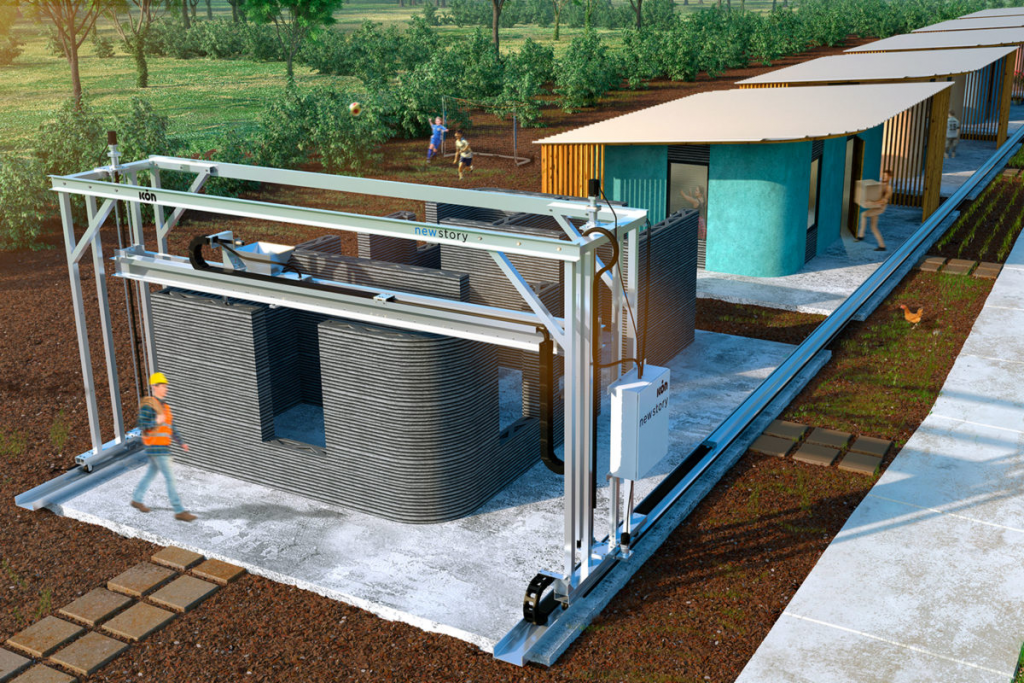
In my first example, I am looking at the technology of 3d printing, which has leapt forwards in the past decade. In the 1990s, these printers were toys, expensive toys with limited abilities. Today, though, we see printers that are very affordable, that can produce items on demand that are surface ready to be used. The size of the printers has scaled up by huge amounts too. Today, it is possible to have a giant printer installed on your job site, and over the period of a day or two, print, out of concrete, the shell of a complete house. While this is still very new technology, it is already in use in a number of places. The result of this innovation? We go from a crew of a dozen or more skilled workers to one person at a computer screen. While it is true that this is still very new technology, it is already in use in a number of places. The costs are tiny, compared to conventional construction, also, as pointed out in the linked article. Here is an example of the growth of the industry.
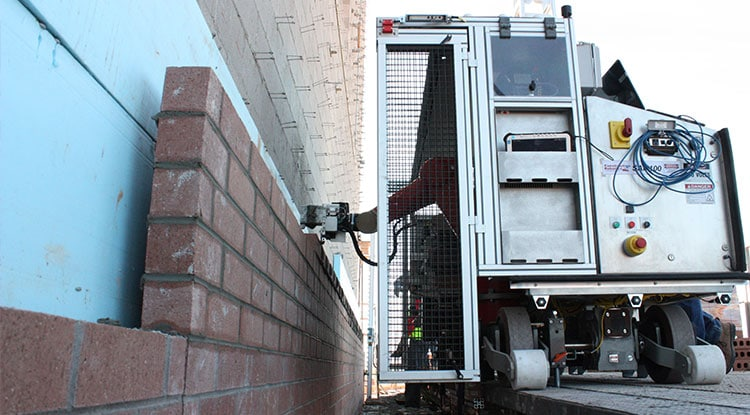
Note, too, that, the same sort of automation is taking over the job of bricklayers and masons. The current bricklaying robots do a far faster and equally good job as the most skilled humans…and for a pittance of the cost.
The Bricklaying robot at work.
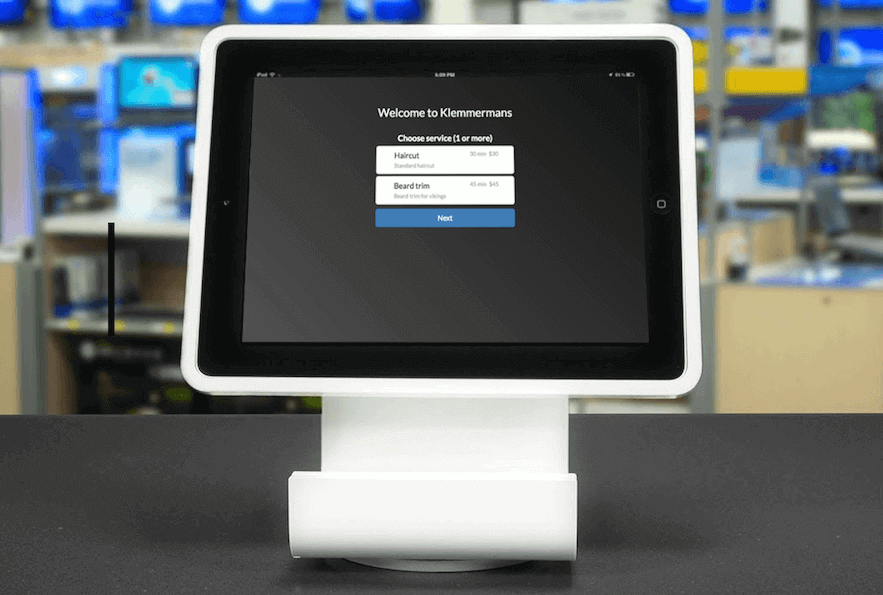
As another example…I had to have some blood tests done the other day. The lab has upgraded since the last time I was there, and, instead of talking with one or more office workers to get logged in, and update my insurance information, I stood at a touch screen on a pedestal, with a built in scanner, and tapped answers out to a series of questions. Upon being prompted, I placed my insurance cards under the scanner, and new images were captured and stored in their computers. I did notice that there were at least two fewer people in the office there, and I wondered…where did they go?
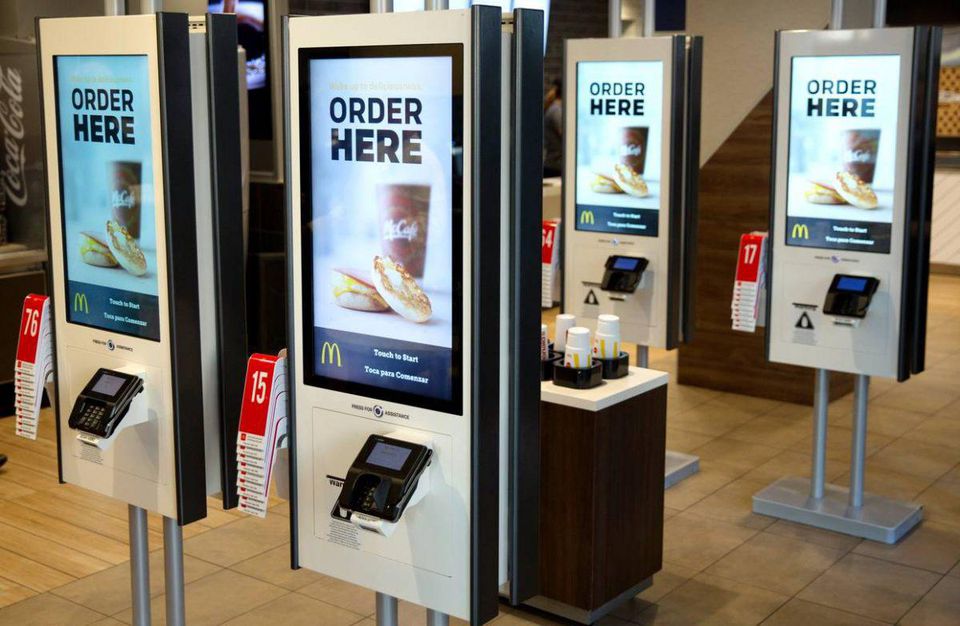
One final example…in many fast food restaurants, when one walks in, instead of several people behind the counter, taking orders, there is ONE person. Scattered around the entryway are a number of touch pads similar to the one I used at the Lab. We, the consumer, have to go tap in our order on these pads, then, the one person behind the counter does their single job…collects payment for the order. However, the work of automation is not limited to simply collecting orders. Already there is a thriving market for robots that will actually prepare the food. Here, for example, is a promotional video for a robot that takes batter at one end, and, spits out perfectly cooked doughnuts at the other! It is not just doughnuts, either.
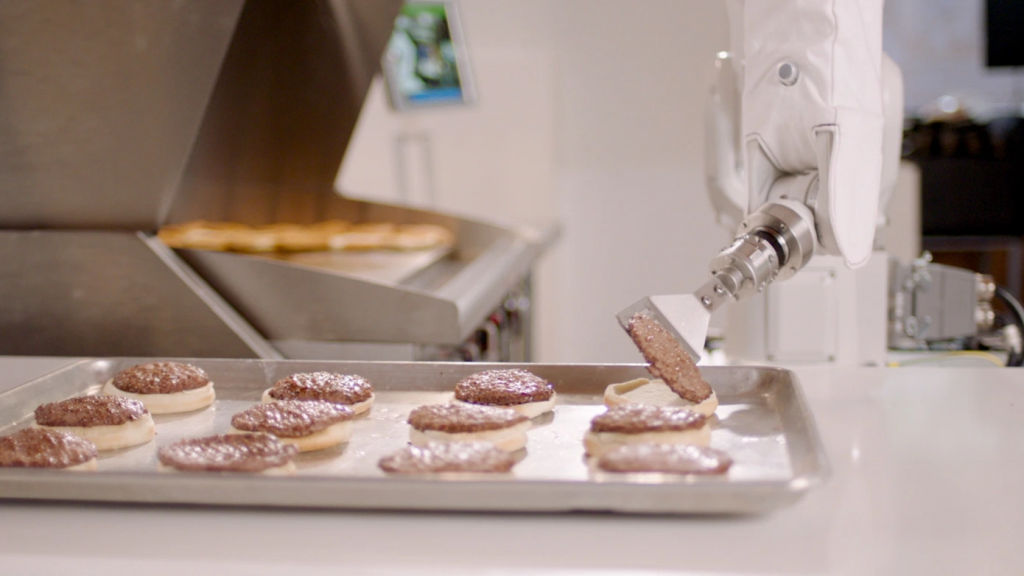
Here is an article about “Flippy the Robot”, a machine that cooks hamburgers!
While all these technological advances are spectacular, and will change life, hopefully for the better, it is an undeniable issue that these and many other inroads to human-based tasks will cause many workers to be out of a job. What do we do about this? Do we ignore it, and let them starve, to eliminate the excess population? Or, do we take a lesson from the Preamble of the Constitution, where the Founding Fathers made it crystal clear that a responsibility of society is to ensure the welfare of all citizens. I do not mean by this that they should be on Government aid for their lives, but, rather, that it is the Government’s responsibility to make sure that every citizen is protected from some level of economic or food-related disaster. Because of this interpretation, I have come to the understanding that it is past time to implement a Universal Basic Income for Citizens. The details are fuzzy still, but, in general, it should be enough cash to ensure that every person receiving it is above the Poverty Line.
Now…how do we pay for this? I suggest there are several major sources of funding that are untapped at the moment.
- By implementing automation, every manufacturer sees a significant jump in profits. Right now, a majority of those monies tend to go to the owners and upper level management of the companies. It is, in a very real sense, a windfall profit. I suggest that these profits should be taxed and collected by the government as partial funding for the UBI.
- The Republicant administrations are famous for coming in and giving huge tax benefits to the very rich. This allows them to hoard money, and avoid paying a more equitable share of the expenses of the country. As an example, I point out the Occupier of the Oval Office from the previous administration. Over the past decade or so, his tax lawyers have used focused loopholes and shenanigans that were not really illegal, but were certainly shady, to ensure that this man, who claimed to be a multi-billionaire, paid either no taxes or a pittance. In two years of his administration he paid only around $750/year in taxes. This, in spite of income up in the millions. when I was working, I would pull in $20,000 a year…and have to write a check to the government for $2,000 of that off the top. Is that equitable? Or is it a perfect example of the powerful getting a free ride because of their influence? I am inclined to go with the free ride explanation. So, I strongly support the idea of rescinding the tax cuts for the very rich, and closing many of the loopholes currently used to avoid paying taxes. Even by doing this, the very rich will will still have more money than most of us can imagine, and their lifestyles will not suffer greatly.
- I would look at the Social Security funding. IF the UBI were to replace Social Security, then, those funds could be added to the funding for it. I suspect, from my conversations with many folks, that if this change were to happen, it would be a significant increase in income from current Social Security amounts.
- I would seriously look at military funding. Right now, America spends as much as the sum total of the next 10 countries on the descending list of expenditures. Are we truly safer for this huge expenditure? Are the funds being spent in an appropriate manner, and is there oversight and auditing? I suggest that the answers to these questions is a resounding “no”. America has been the policeman of the world for decades. While I think that is a valuable service, I do NOT think that we should be the major player here. I support both cutting back on the funding of the military as well as better oversight, AND, a closer relationship to the UN, so, we can let THEM be the policeman of the world.
Will these happen in a rational fashion? I expect not. I suspect that we, as a society, will let the sttus quo rumble along, until there are so many desperate, poverty stricken people who used to have a decent quality of life, that we see a “French Revolution” break out against the very rich. This would be a bad thing, and an unnecessary thing…so I hope that cooler heads will prevail.
God Help Us All!
Be Safe, wear your mask, wash your hands well, practice social distancing…and get your vaccination shots.
Bee Man Dave.